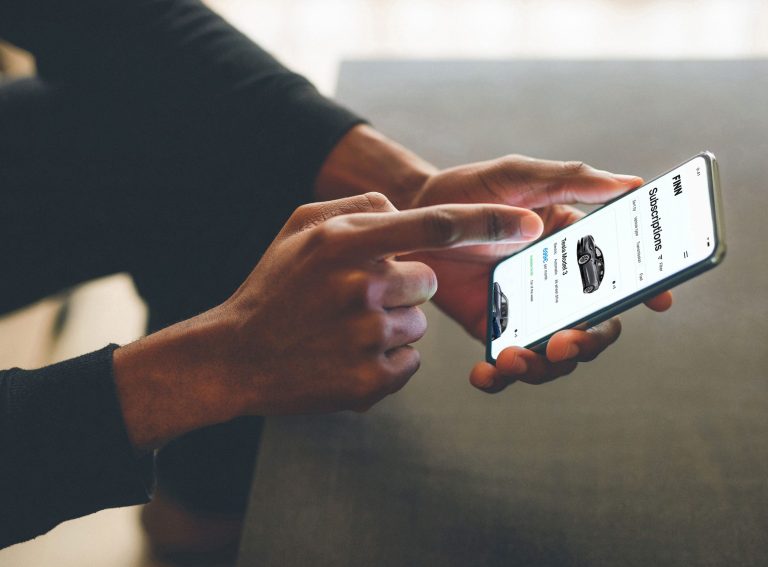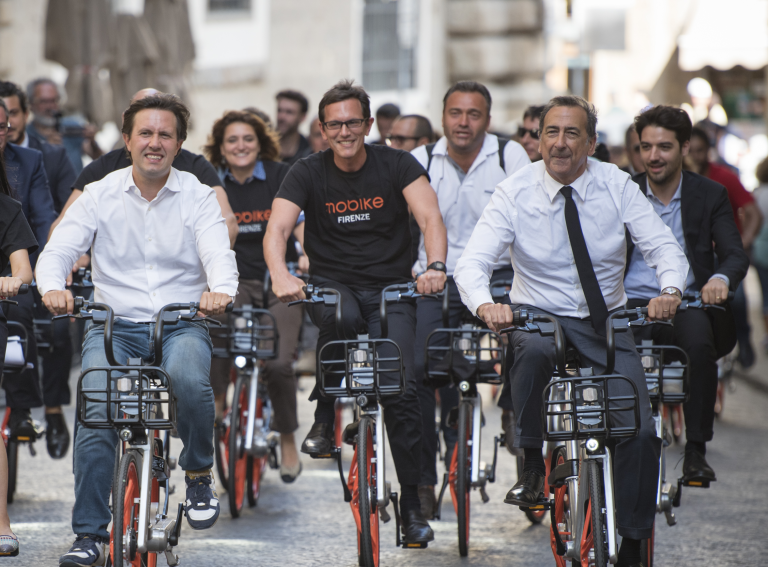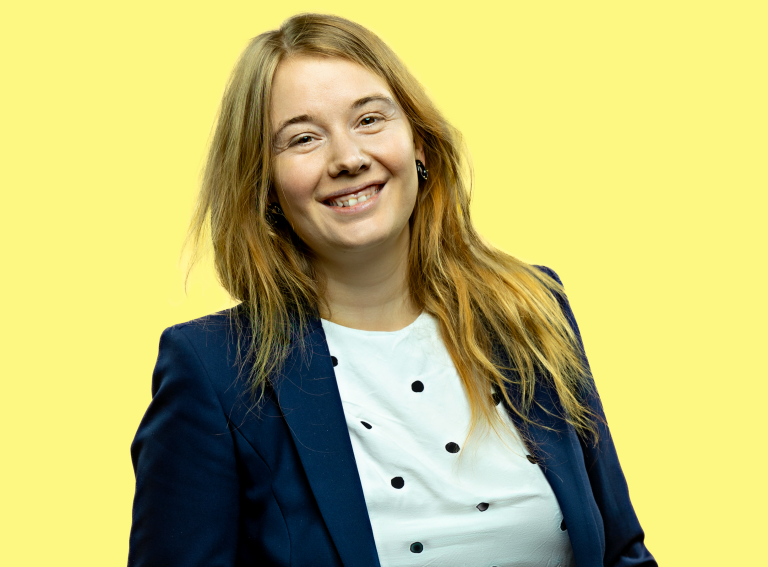Kicking off Zag’s new Women Making Moves series – where we’ll be regularly spotlighting an influential female figure in the industry – is Georgia Yexley.
Certainly no stranger to Zag, Georgia is the founder of sustainable transport business Loud Mobility.
Georgia founded the business in 2023 and this month celebrates one year of operations with a focus on increasing the number of joyful sustainable journeys.
A brand-new headquarters in Central London, the acquisition of Cyclechic, funding from the Foundation for Integrated Transport (FIT) for the She’s Electric campaign, and now winner of Innovate UK’s national award for fresh talent – Loud Mobility has a huge amount to shout about.
Zag: What has Loud Mobility focused on during its first year of operations?
GY: “The company has organically grown to where it is now, but it’s also ended up where we wanted it to be. We’ve been able to have a profitable first year by bootstrapping ourselves with the principles of financial sustainability that you can’t separate from the context of the industry right now. Our approach is always about collaboration and what we’ve found is, with a lot of partners, having less capital or resources can actually be more of an incentive to collaborate.
“We’ve also been contributing from an advocacy level in projects such as those from the Bicycle Association which I hope continues. We’ve had advisory roles with regional transport bodies to help enable the just transition to sustainable transport systems. Having the ability to put time into that advocacy work, engaging with wider partners and sharing our experience is a key part of our reinvestment in our longer term goals.”
Zag: How have you managed to sustain a profit?
GY: “We achieved 52% operating profit in our first year. We did that with no external raising, no VC funding, and no shareholder pressures. It’s meant that we are also in a position to say no to opportunities that don’t align with our values. We have been successful in receiving a couple of grants such as support for She’s Electric from FIT, and UKRI grant which we’re so excited to announce. Something I’ve seen many times over, is when there are these big booms in the industry and companies have lots of investment coming through from shareholders, and then they hit a downturn. All too often, the first things to go out the window are the environmental and social impact goals and responsibilities.
“Most of our profits have been reinvested into the business. We’re doing a brand refresh, where we’re rebuilding our website, investing into a digital platform for the She’s Electric campaign, and we’ve been able to occupy this accessible space in Central London that we’ll use to network, run events and support the collaborations that underpin our business. Occupying this space was in our three-to-five-year plan but we’ve been able to achieve it after just one year. We’re taking a calculated risk by reinvesting back into the business, not by extracting huge amounts for shareholder or personal profits.”
Zag: What personal challenges have you faced as a woman in the new mobility industry?
GY: “Even though we choose to put our time and energy into advocacy work and spend time and energy on things that we believe will benefit the industry long-term, the difficult part is knowing when to say no. As a mixed heritage woman who is vocal about accessibility, inclusion, diversity and wider equalities topics that I think organisations do want to learn more about, I’ve seen that many still haven’t understood the investment needed in these areas to gain real value, long term. The amount that we’re asked to do for free is difficult and more often than not women of colour and people who want to do advocacy work are expected to provide these things for free. The mindset needs to shift there, to the fact that we’re offering you our experience as well as our industry expertise, and this brings value to you on an economic level.”
Zag: How are you overcoming this challenge?
GY: “You start to learn the value of your time quickly when you’re building a business. When you contribute to external organisations, you see the cost to your business quicker than you see the value.
“We’re therefore being proactive to tackle this in two ways. First, we operate our business to be mission-led to demonstrate that it is financially viable to put those values first. Secondly, we are saying no to things that aren’t genuinely understanding that value. It gets easier to pick them out but it’s still hard, because if an organisation doesn’t have the funds or even if they do but is not at the stage of understanding the long-term values, you still want to see them taking those first steps. We’re truly passionate about that mission and want to see the industry go in the right direction. But we only have so much capacity to offer those organisations that really don’t see the economic value of investing. So, we’re finding the right balance between saying yes to things that can add value but saying no to things that don’t recognise the value.”
Zag: What do you think is an overall challenge for women in the industry?
GY: “Culturally, there are entrenched beliefs about what a person in the realm of transport looks like, and this is perpetuated in how organisations and spaces are built. Often, women are only called into these spaces within a specific gender lens on the issues that women face, rather than the value and insight they bring into the room. The number of times I’ve been asked to speak on gender and safety concerns far exceeds when I’ve been asked to speak on the fact that the female-founded businesses I’ve worked on have been the most successful, or of the incredible innovations from the many female founders that we’re working with. We’re stuck in this mindset of talking about women within the context of the bare minimum. How do we make women safe? How do we get women into the industry? This is basic, not ambition.
“This goes beyond gender. For me, gender is one aspect of my identity but being a black woman of mixed heritage, means my race is often seen ahead of my gender. That intersectionality, and then also understanding my own neurodivergent disability, has largely determined how I experience the world.I would not have had the insights or experiences to set this business up without those aspects of my identity. The industry seems to be stuck on the limitations and barriers rather than the opportunity, value and contributions. We need to move away from the bare-minimum and focus on increasing value and joy. That’s why the focus at Loud Mobility is about joyful sustainable journeys for everyone.”
Zag: What practical measures do you want to see organisations taking to improve the industry for women?
GY: “Look at your board, look at your investors, and look at your senior leadership team. It’s not to set about chastising yourself for how terrible it is that you only have white men of a certain age on your board – a lot of companies are in that position. But if you don’t directly acknowledge that first, you’re never going to take the genuine steps towards addressing it. Start from the top. All too often, initiatives around inclusion and accessibility will be a bare-minimum entry-level policy which looks to the employees who hold the same identities to shoulder the burden of building something around these groups. This can be fantastic, but if the culture set at the top of an organisation doesn’t see the value in that, then it’s a lot of work for not a lot of output.
“There’s also a fear of getting it wrong, but this risk aversion just holds organisations back from progress. A good bit of advice from a former manager of mine was don’t let the perfect get in the way of the good. As long as you’re willing to acknowledge your areas for improvement, then doing something and moving forward is much better than being static.”
Zag: Where is Loud Mobility going in its year ahead?
GY: “This first year has been driven by organic growth and incredible support from our community. Now with the UKRI grant, the acquisition and the rebrand, we’re in a place to formalise and structure the business. We’re focused on building the She’s Electric campaign and bringing in wider partners to grow it culturally and nationally. We also aim to work with a larger group of project managers and industry experts on collaborative and innovative projects, while also supporting these change-makers in taking forward their ideas and helping them gain access to networks and spaces to make a change in the sector. We have this new space, our ‘clubhouse’, in Central London accessible by all the major train stations, walking, wheeling and cycling. Here, we’ll be hosting events, parties and networking activities and it won’t be the typical hub you might see either in the cycling or the transport world, but somewhere that is inviting, inclusive, affordable and accessible.”
Zag: Who is one woman in the industry you would like to spotlight?
GY: “I’d love to highlight Hu WeiWei – Founder of Mobike – and the first female founder and micromobility leader I worked for. Her leadership and commitment to the social and environmental impact that micromobility could make had a huge impact on me personally, and the industry at large. We all too often take a euro-centric view of the micromobility space and miss the global changemakers who have been integral to shaping what it is today.
“I’m regularly mythbusting about Mobike. Not being active in the UK, it’s often equated to its ‘failure’, ignoring the continued services made up of millions of bikes operating across the globe today. Hu Weiwei successfully sold the business (to Meituan Dianping which later IPO’d on the HKSE) for a rumoured $2.7 billion.
“When we spoke on a video call during the pandemic, she shared that if she could do it all again, she’d put much more focus on people and community. That’s really stuck with me, and I often think of her guidance as we develop Loud Mobility and what we want it to become.”





